This post is also available in:
 Tetun
Tetun
Sitting here at my now familiar work set up in my apartment in Western Australia, tuning out my housemate as he sings loudly along to the radio, I reflect on the incredible achievements of the Blue Ventures team in Timor-Leste, and in particular the coastal community of Beto Tasi in the later half of 2020.
Back in March, when the uncertainty of COVID-19 really started to peak, I moved from Timor-Leste back to my hometown of Bunbury, 170 kilometres south of Perth. It’s a very different reality working remotely from Australia rather than with the team back in Timor-Leste, with many hours spent connecting via Google meet, phone calls and WhatsApp messages.
Despite these challenges, we remained united and after a whirlwind end to the year, we were able to celebrate the establishment of an ambitious new community-led homestay group in Beto Tasi – and with it 10 new homestay business owners.
For tourists and travellers seeking an immersive experience, homestays are a popular way to explore new places whilst ensuring the money spent stays with the community that hosts them. These community-based tourism businesses can be found both in cities and off the beaten track, where families open up their homes to visitors, providing a unique and honest opportunity for tourists to engage with daily life.
Besides creating meaningful cultural exchanges, homestays also act as a catalyst for further community-led businesses that offer complementary products and services, such as snorkelling and hiking tours, traditional cooking workshops, food and drink kiosks, laundry services and transportation.
Being a homestay host is a good job. It requires less than being a fisherman and has opportunities for growth in the future. Homestays also benefit the entire community as well as other villages, not just the host families. For example, we use part of our income to buy fruits and vegetables for the guests to eat. This brings income to other community members and other communities.” – Estevao, Homestay Owner, Atauro Island
Homestays also have the potential to challenge sociocultural norms, helping women to gain access to financial independence and have an equal role in decision making at both the household and community level.
In Timor-Leste, where our team support communities to manage and monitor their local marine ecosystems, homestays have proven to be a valuable tool for enabling them to engage in discussions regarding the management of their fisheries and begin to develop locally led approaches to marine conservation that also reap socio-economic rewards.
In 2017, we started working with the community of Beloi on Atauro Island to pioneer the development of the Atauro Homestay Association (AHA), involving eight families. Lying just 25 kilometres north of the nation’s capital Dili, the idyllic island of Atauro boasts some of the most biodiverse coral reefs in the world. This island is a hotspot for whales and dolphins, and provides a wealth of opportunity for land-based exploration too, with quiet beachside villages and spectacular views of the ocean from the peaks of its rugged terrain. The community of Beloi were well-positioned to take advantage of this phenomenal natural beauty and venture into Timor-Leste’s growing tourism industry (both domestic and international), creating home-grown business opportunities that they would have complete ownership of.
Initially AHA was able to develop through Blue Ventures Expeditions, our ecotourism business which welcomed international volunteers to Atauro Island on six-week expeditions to assist our team of local and international scientists in collecting valuable monitoring data on the local coral reefs. Volunteers would stay with homestay families during their visit, experiencing the warm welcome of authentic Timorese hospitality.
Over time, as AHA refined their hosting skills and gained confidence, they began to invite tourists independently of Blue Ventures. The AHA community also emerged as marine conservation ambassadors, leading and participating in initiatives like beach cleans and seagrass monitoring with support from Blue Ventures and a local non-profit, Ekipa Tasi Mos, which runs a marine plastics recycling station.
The news of the success of AHA travelled across the Wetar Strait to the community of Beto Tasi, a semi-rural community located on the fringe of the capital of Dili. Beto Tasi first approached us in April 2019, as they were inspired by AHA and had ambition to embark on their own community-based tourism journey. However, it wasn’t until August in the following year that this gained momentum thanks to a renewed emphasis on local tourism development in the country.
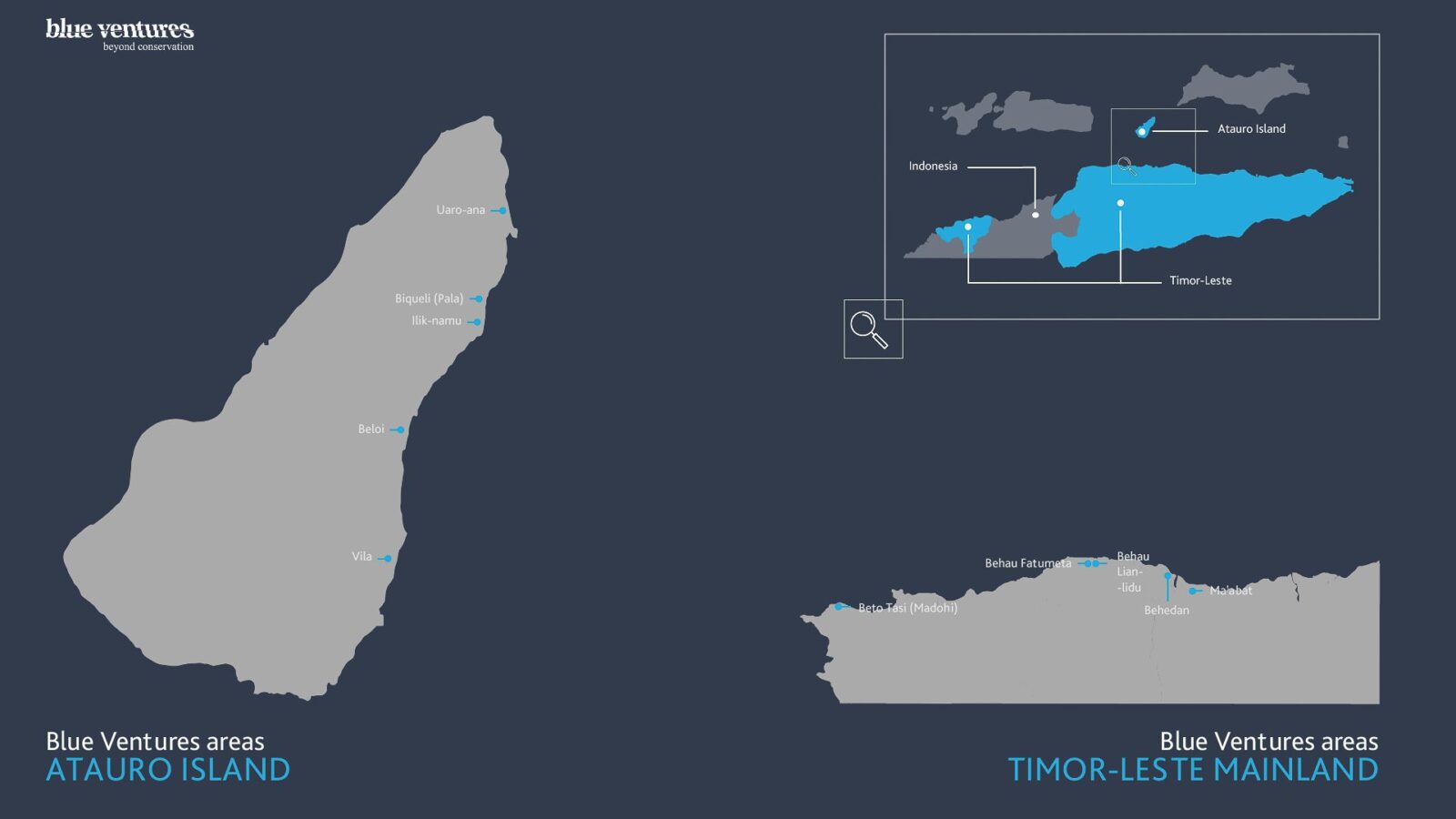
A map showing Atauro island’s fishing communities that Blue Ventures partners with, as well as the communities we work with on the mainland, including Beto Tasi | Image: Blue Ventures
When Oldegar, Blue Ventures’ Operations Manager, first contacted the Xefi Suco (village chief) of Beto Tasi about developing homestays he was rather surprised, “even with COVID-19 and no tourists allowed to enter the country?!”. He wasn’t wrong – by August, the global pandemic had taken hold, and although Timor-Leste had managed to avoid a surge in cases, as a small island-nation with limited healthcare infrastructure, closing the borders was necessary for keeping the virus at bay.
Yet, for the budding homestay association in Beto Tasi, the pandemic provided an opportunity to develop the important groundwork so that they would be ready to welcome guests – initially focusing on the growing demand for domestic tourism, followed by international tourism when such travel is made possible again.
To start with, the team launched into a series of community consultations. Embracing the stifling heat of an outdoor meeting space, our team met with the community leaders of both Beto Tasi and the surrounding sub-villages. Dedy, Blue Ventures’ Conservation Officer, opened the meeting with a presentation introducing our wider work in Timor-Leste and our ideas for homestay development over the next three months. He was really encouraged to see their enthusiasm, drive and entrepreneurial spirit – they couldn’t wait to get started!
Following the consultations, the community of Beto Tasi selected 10 homestay families based on an agreed criteria, with a focus on low-income fisher families. Many families in Beto Tasi are dependent on marine resources for their livelihood, so offering an opportunity to diversify their livelihoods is an important step towards reducing the pressure on these resources and opening conversations about conservation measures to sustain them for the future.
Shortly after the selection process, 10 representatives from the homestay families travelled to Atauro island to participate in a community learning exchange with AHA. The participants were bubbling with excitement as they took the four hour ferry journey from Dili; this was a rare opportunity for them to travel as tourists within their own country and be welcomed to Atauro as VIP guests.
The next two and a half days would see them participating in workshops and activities where members of AHA and other ecotourism entrepreneurs shared their knowledge and experiences. This included discussions on how to provide a good level of hospitality, which activities tourists most enjoy and what skills they should focus on developing. Some participants learnt how to make seaweed cake and prepare traditional Atauro food, a popular new business run by a women’s group on the island.
The learning exchange was also a fantastic opportunity to deliver a marine conservation workshop. Dedy and Mima (Conservation Liaison Officer, Blue Ventures), led the workshop with support from members of the community-based fisheries and seagrass monitoring groups that they work with on Atauro. The participants learnt about the importance of locally led marine management, and why protecting their local marine ecosystems can help communities to build resilience – not only as a source of food security, but as a defining factor of their community-based tourism ventures.
Other activities involved brainstorming how Beto Tasi currently utilise their marine resources and participating in a beach clean with Ekipa Tasi Mos. Two Beto Tasi representatives also went snorkelling in Beloi’s locally marine managed area (LMMA) to see how it compared with their local reef. These activities have already sparked discussion amongst the Beto Tasi community around how their ecotourism businesses can support local conservation efforts.
With this learning exchange, although it is a small step, I believe that it will one day create a new generation that considers the interests of wider society, whether that’s community development or marine conservation.” Dedy
The exchange proved to be an excellent example of how effective peer-to-peer learning can be when it comes to sharing community-owned solutions – and not just from a practical perspective. Although learning was the primary goal, the exchange also provided a platform for the communities of Atauro to acknowledge their journey and achievements thus far. This was eloquently put in the welcoming ceremony where community leaders spoke of the perseverance and commitment shown to navigate the challenges of a shifting community dynamic that has ultimately allowed this cooperative business to flourish.
Just before the festive break in December, the homestay families in Beto Tasi welcomed their first guests – a group of women from the community of Behau Lian-lidu, who needed somewhere comfortable to stay whilst they took part in fisheries monitoring training in Dili, facilitated by Blue Ventures. It was a brilliant way to end the year and nod to the possibilities 2021 could bring to this ambitious community of budding ecotourism entrepreneurs.
Learn more about how the families of Atauro pioneered the island’s first homestay association
Find out how team Timor-Leste united to take on the pandemic





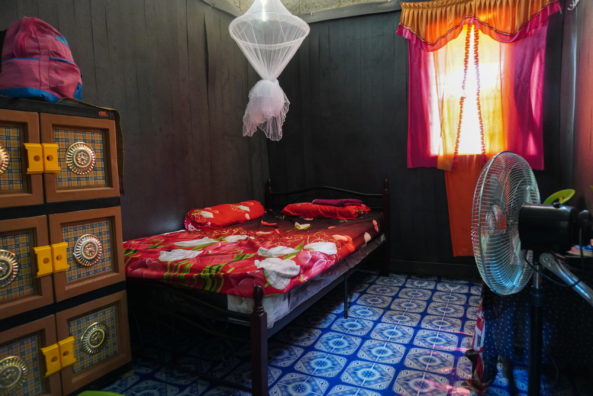
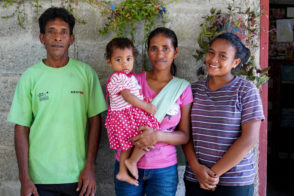
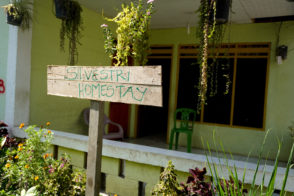
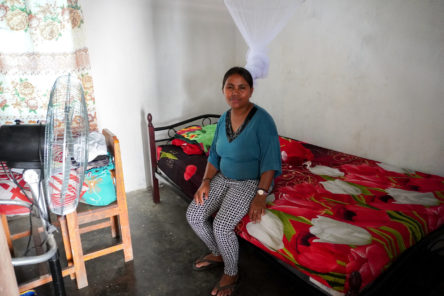
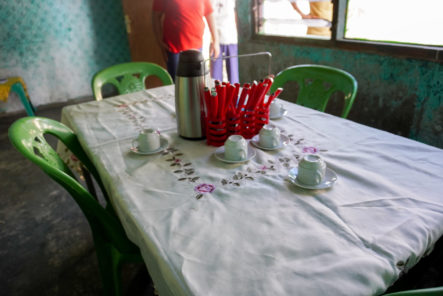
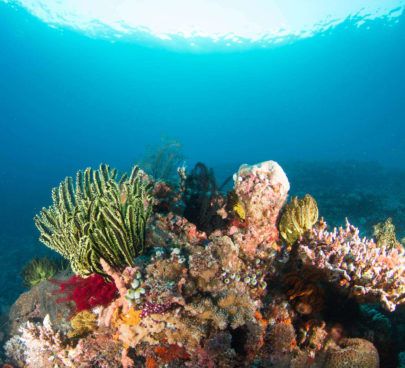
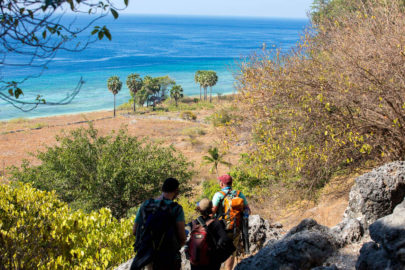
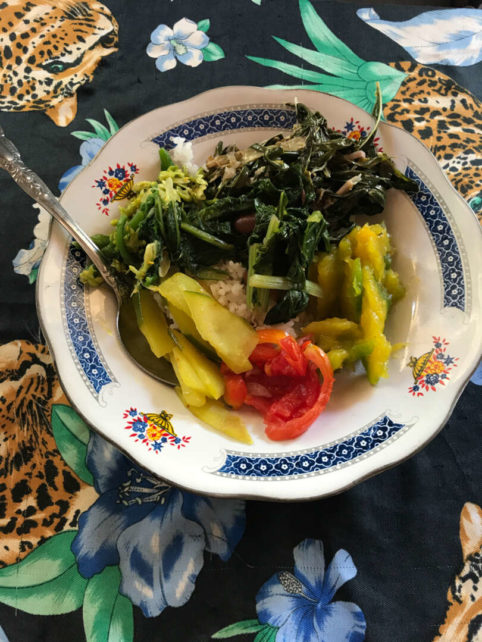
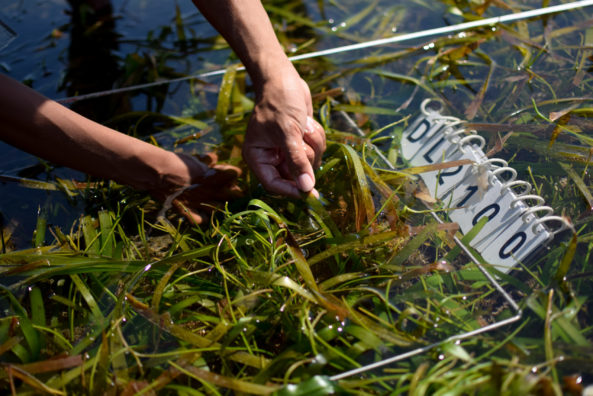
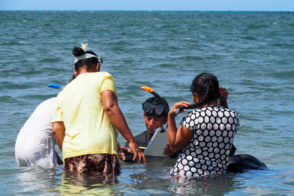
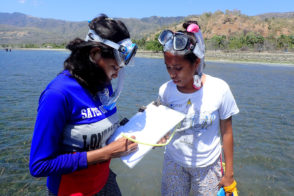
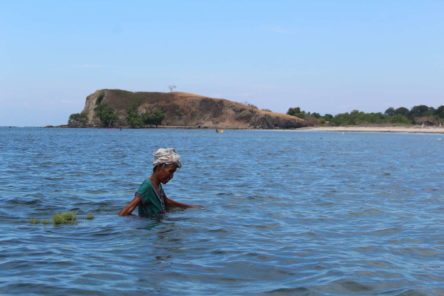
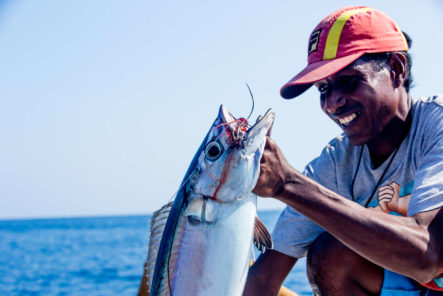
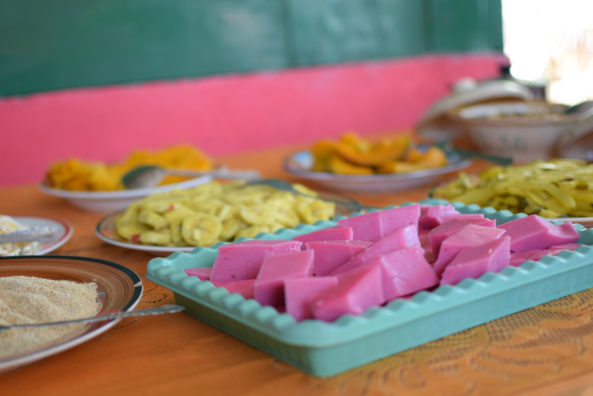
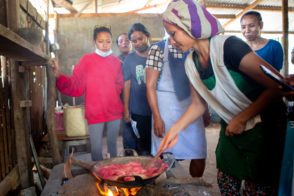
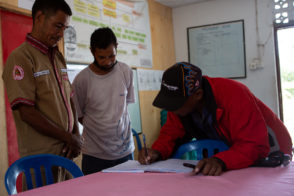
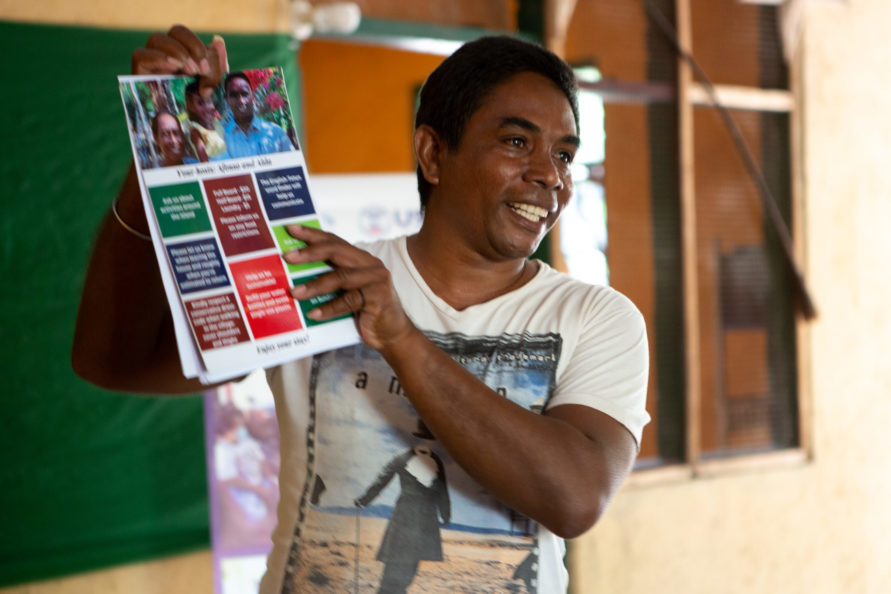
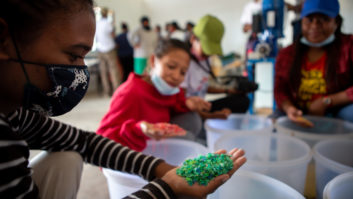
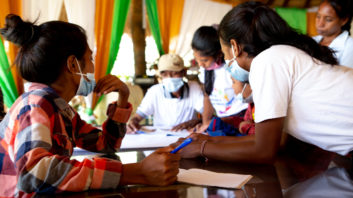
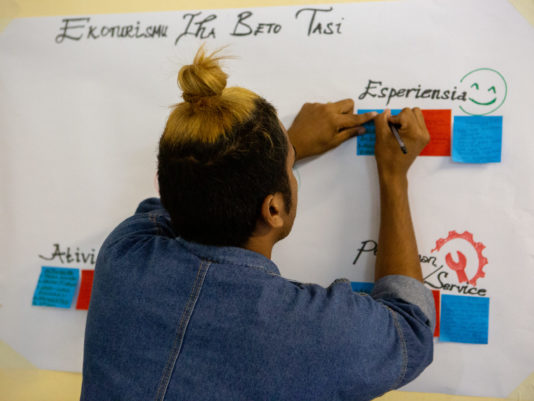
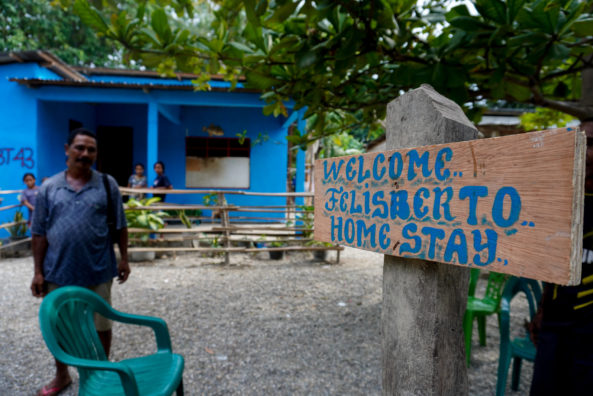
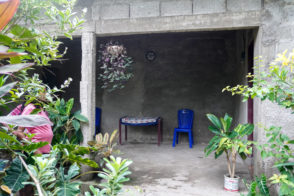
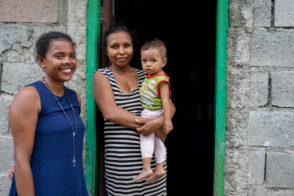
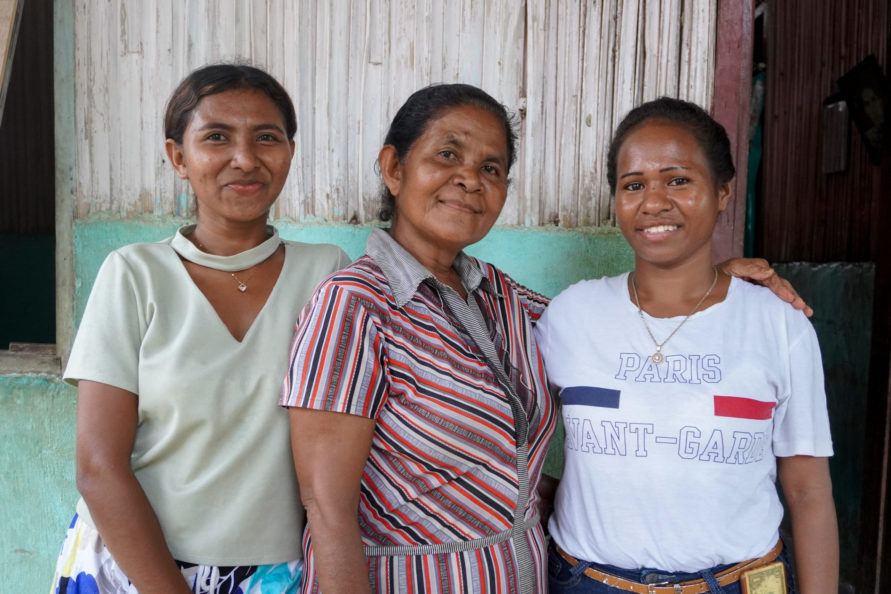
I love this idea so much! I’m so grateful to the people who are willing to open their homes and lives to strangers. When I travel, I usually travel alone and try to learn about countries’ local cultures vs stay solely in the touristy areas. Because aside from trying to visit for the beauty of nature, I am curious what life is like in the area I’m visiting. I’m also an environmental scientist and stay away from resorts on beaches wherever I go. So all around, I think this is so lovely! My question is, for my future travels, how do I find these homestays (in any country)? Is there a website?
Side note: I think another great idea would be to have optional volunteer opportunities. (Not in exchange to stay, because I’m definitely willing to pay.) Or a separate program that allows travelers to jump in and do a clean-up or something. I’ve searched for environmental volunteer opportunities before traveling before, but they’re beyond difficult to find or the ones I did come across were long-term and I would have to pay to volunteer. Anyway, I wish short term volunteer opportunities were a thing because I would love to participate. I feel bad for using airplane fuel to travel across the world, so I would feel a tad bit better if I took one minor positive step towards offsetting that.
Hi there Jade,
Thanks for your comment and great questions! Community homestays are typically small-scale operations and often lack the resource or knowledge to market themselves online. This is something we hope to support in the foreseeable future with the development of an accessible online homestay platform and training. http://www.stayrajaampat.com is a great community-led example of how this can work. In the meantime, finding community-based tourism initiatives can take a bit of extra research when visiting a new destination but it is usually possible.
Likewise, short-term volunteer opportunities can be hard to find as effective volunteering typically needs time and a good management structure to achieve the desired impact. International volunteer programmes offered online typically come with a cost and longer timeframe to ensure adequate training and safeguarding is in place for the volunteer and host community. As this type of volunteering is not always possible then homestays and community-based tourism enterprises can offer a great pathway to engaging with community programmes on a more short-term basis.
I hope that is helpful – please don’t hesitate to get in touch with us for more information.
Thanks again,
The Blue Ventures team